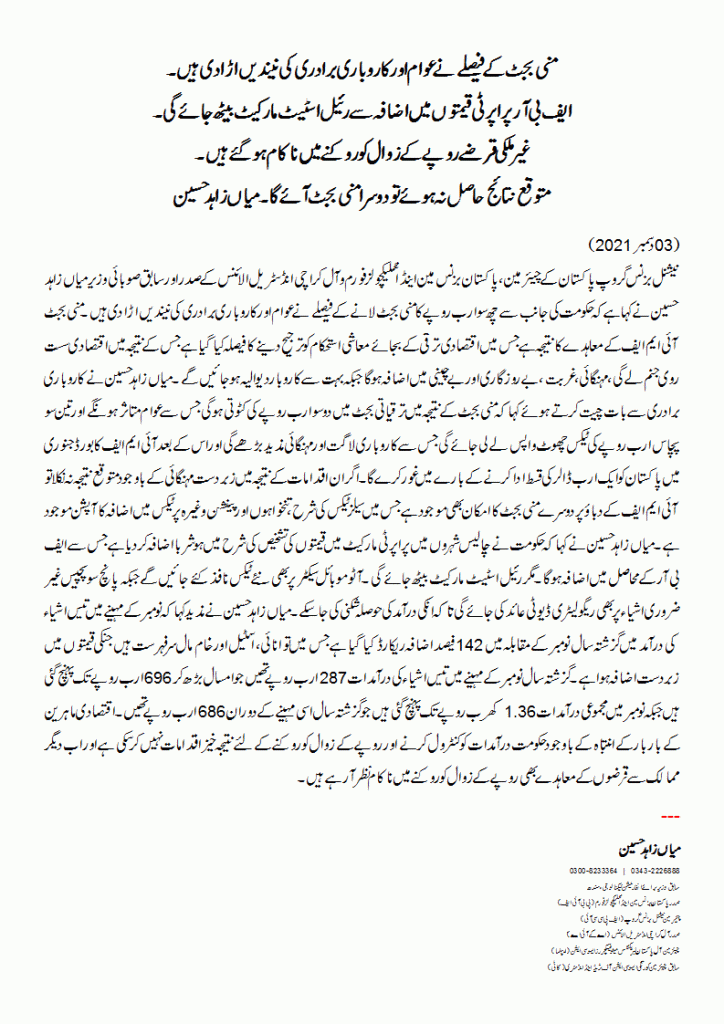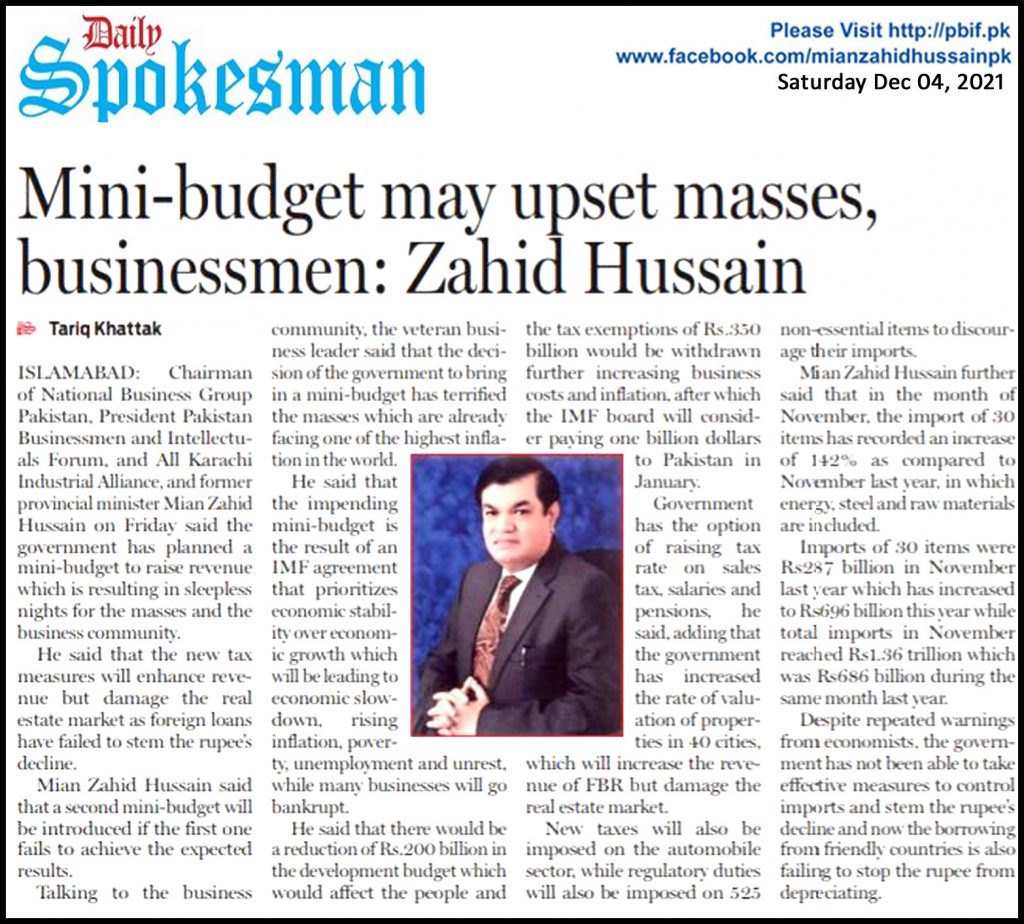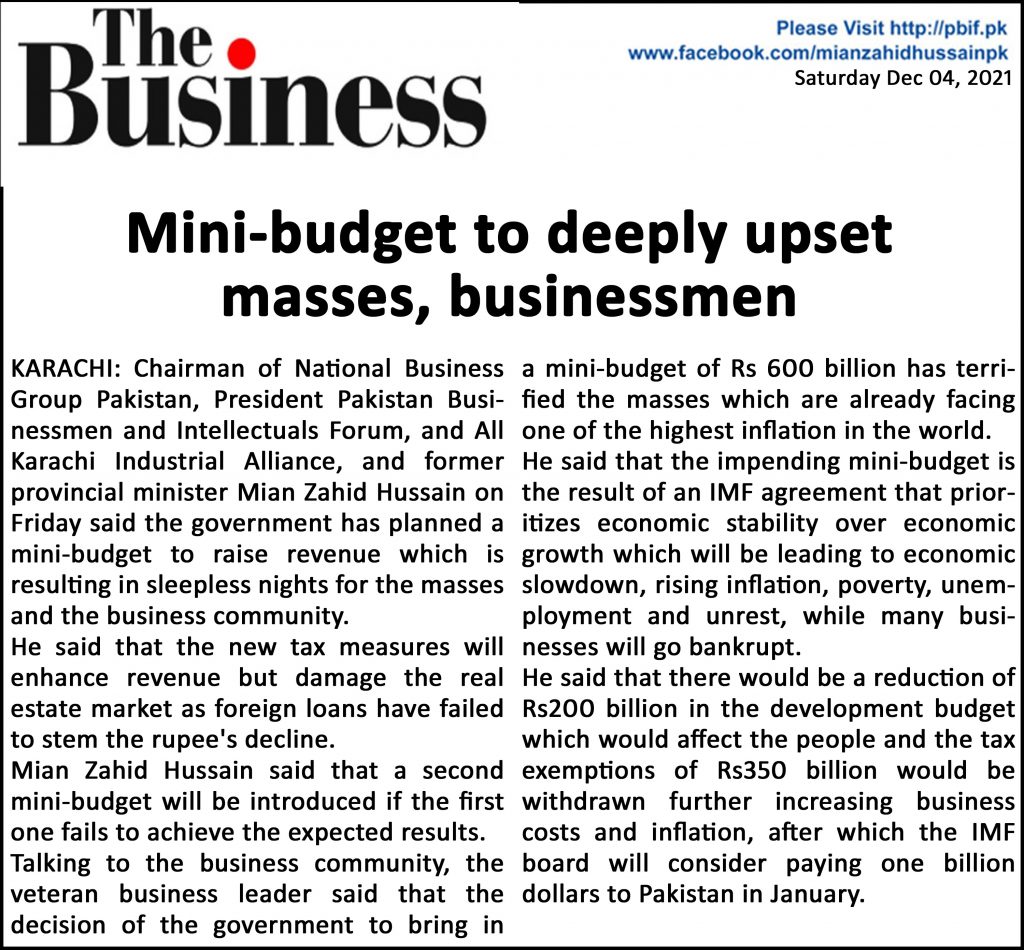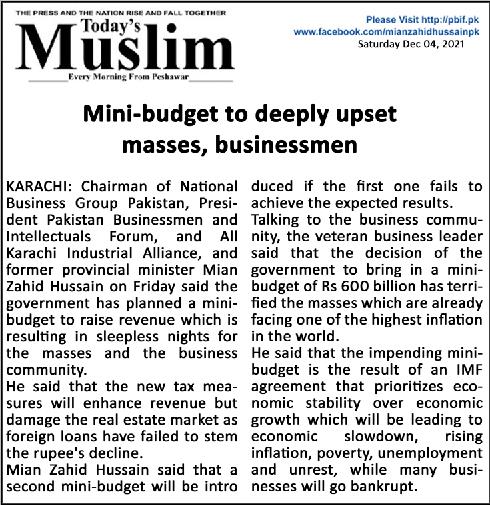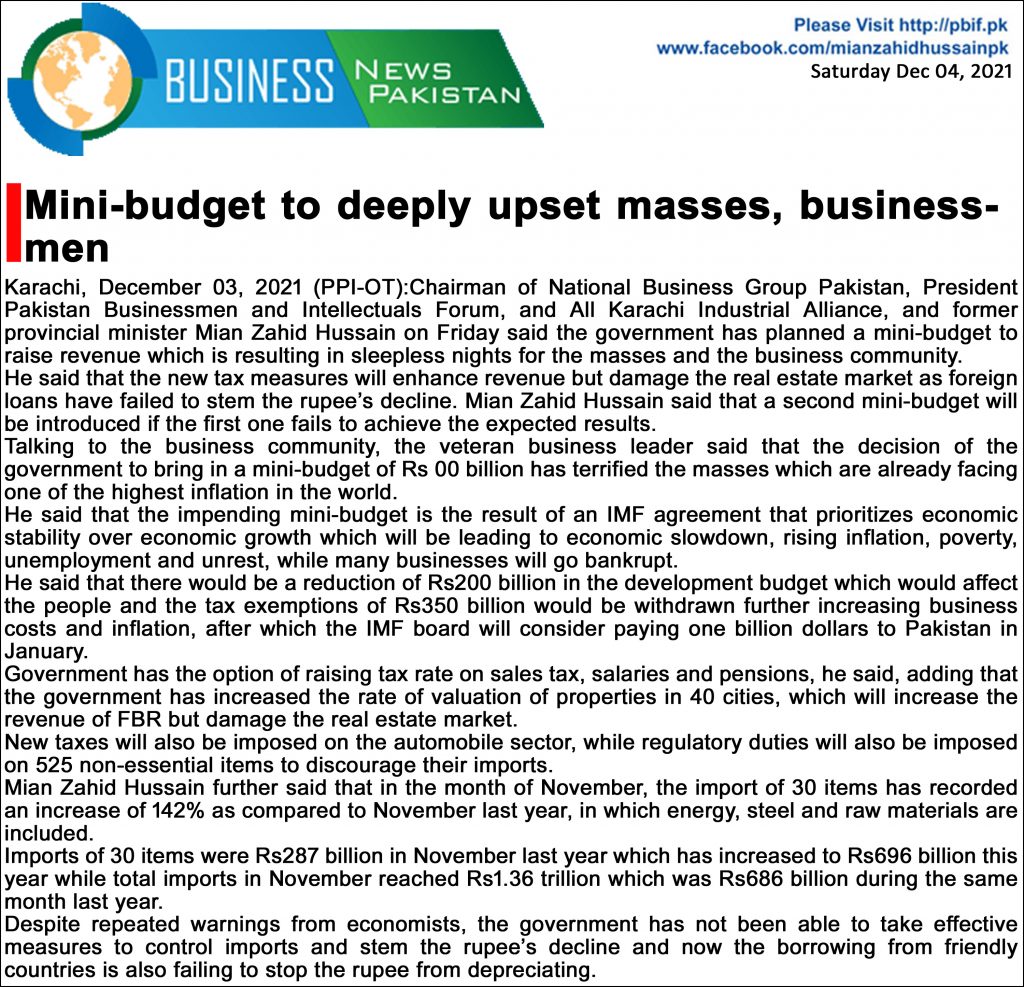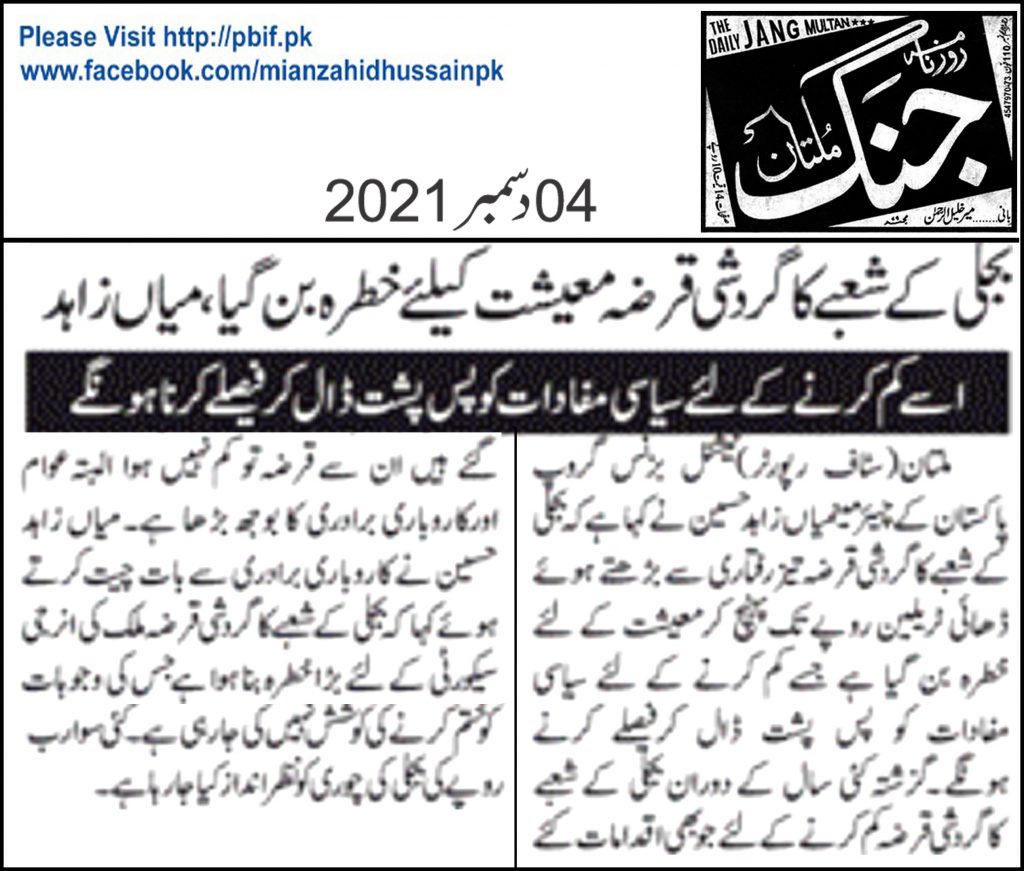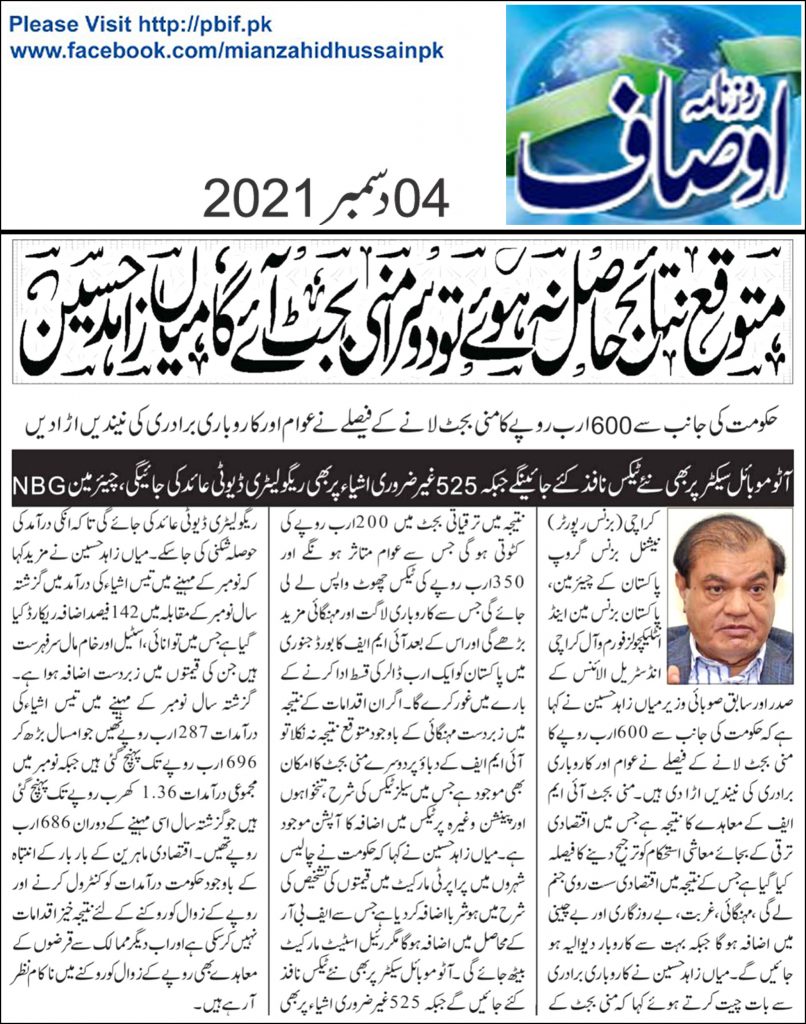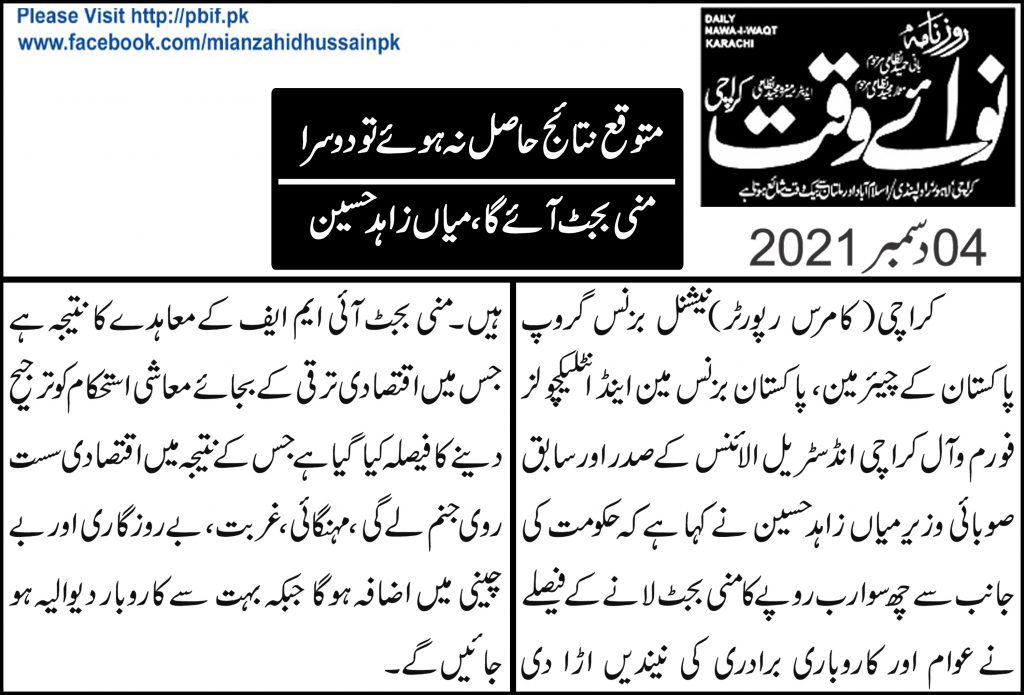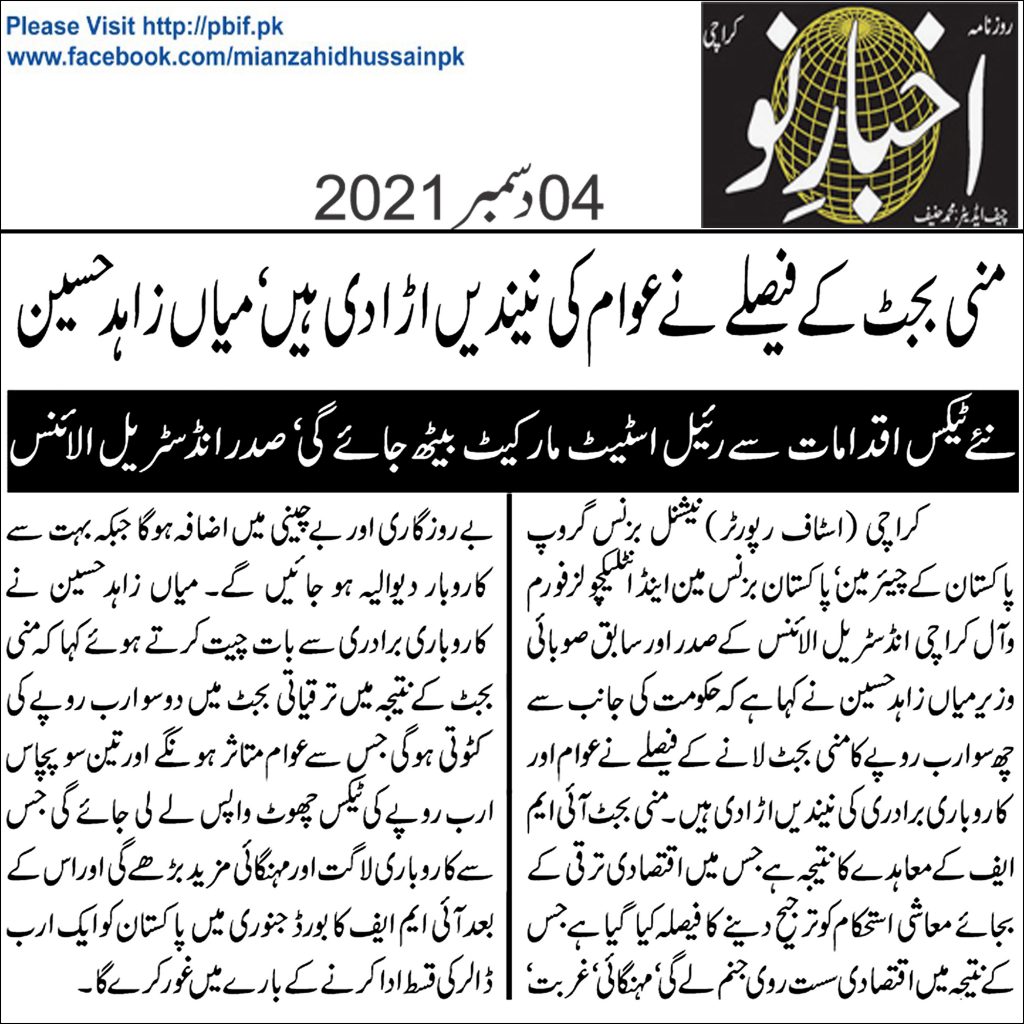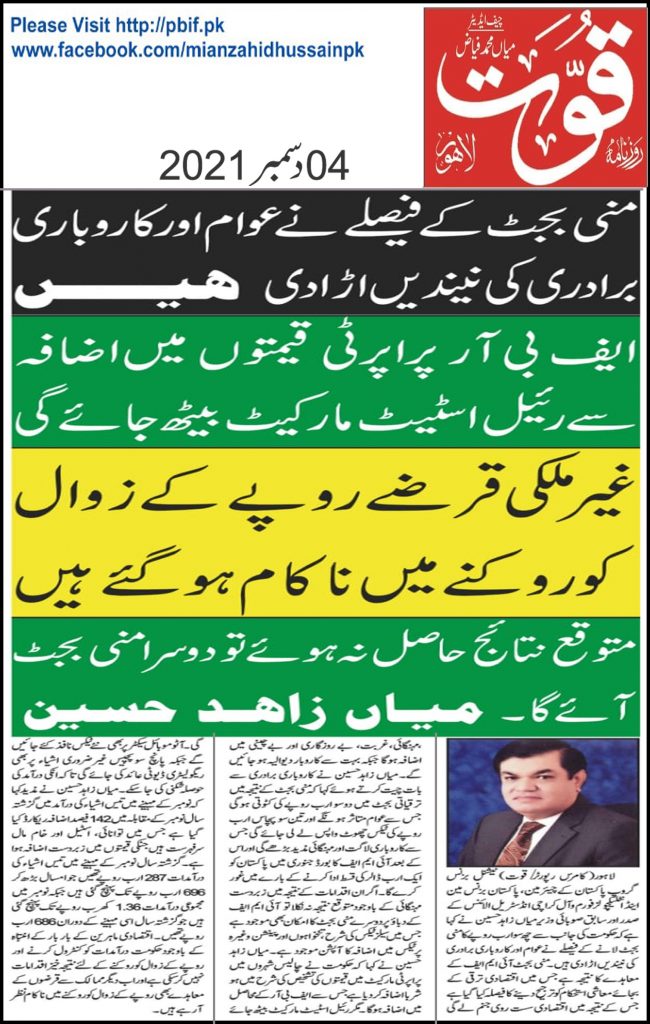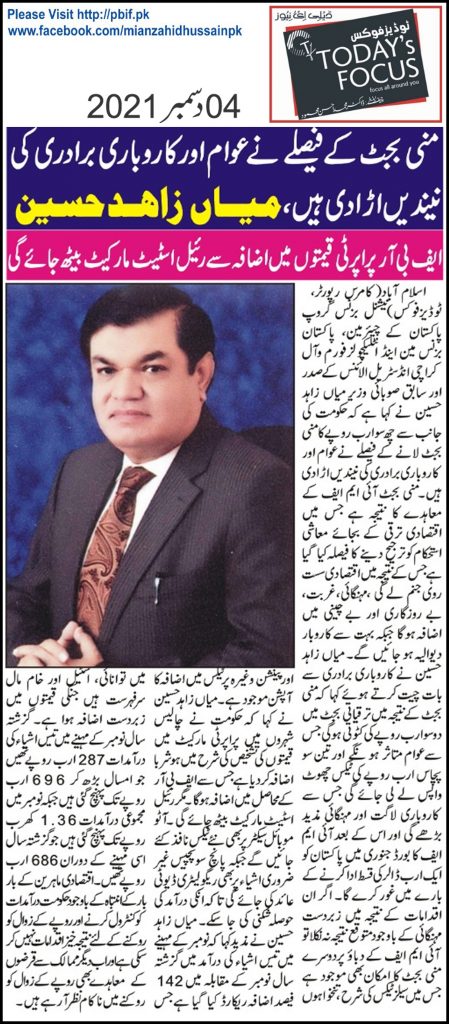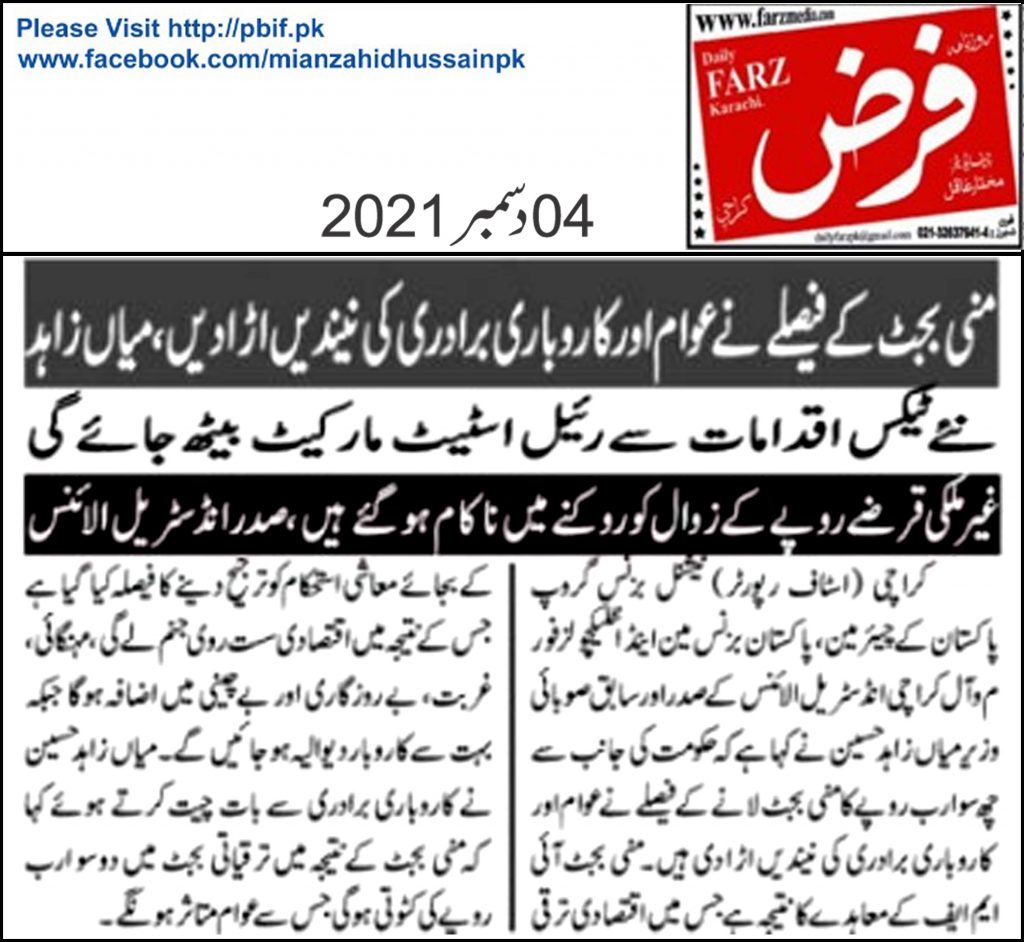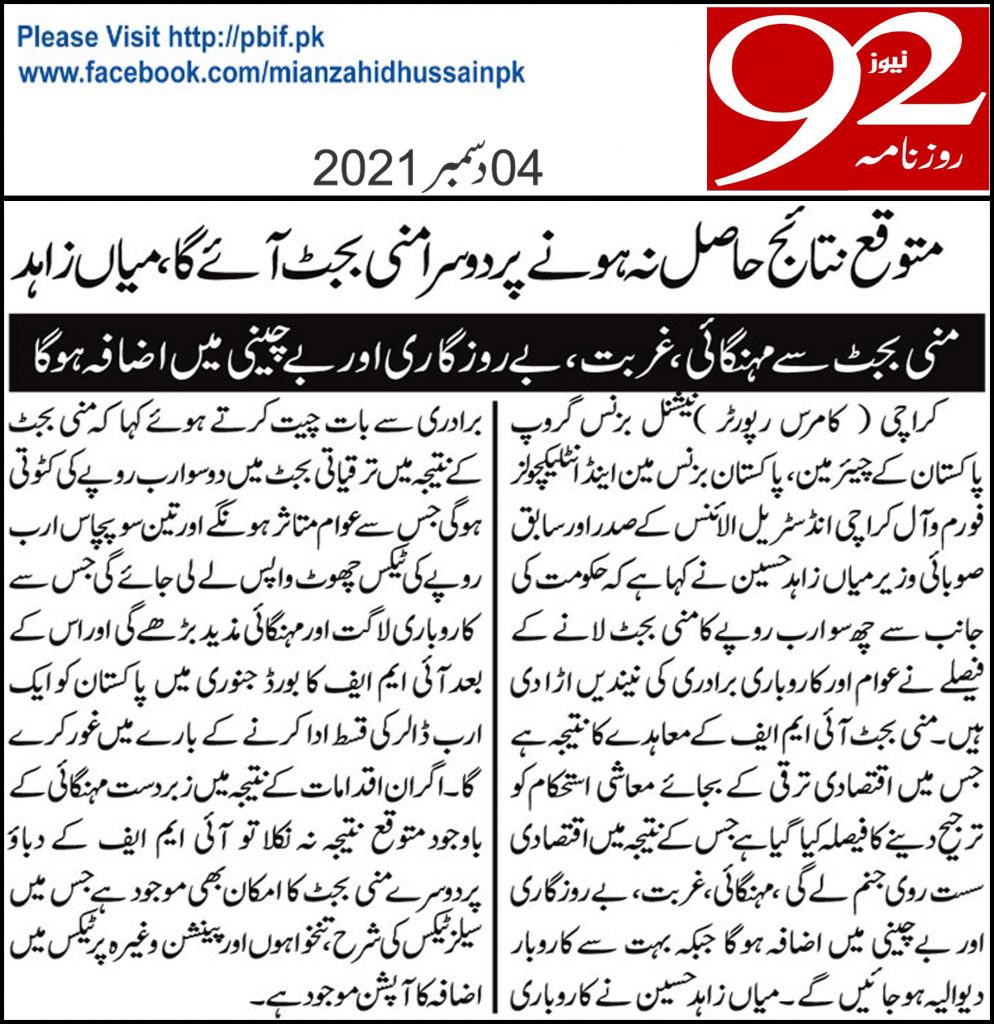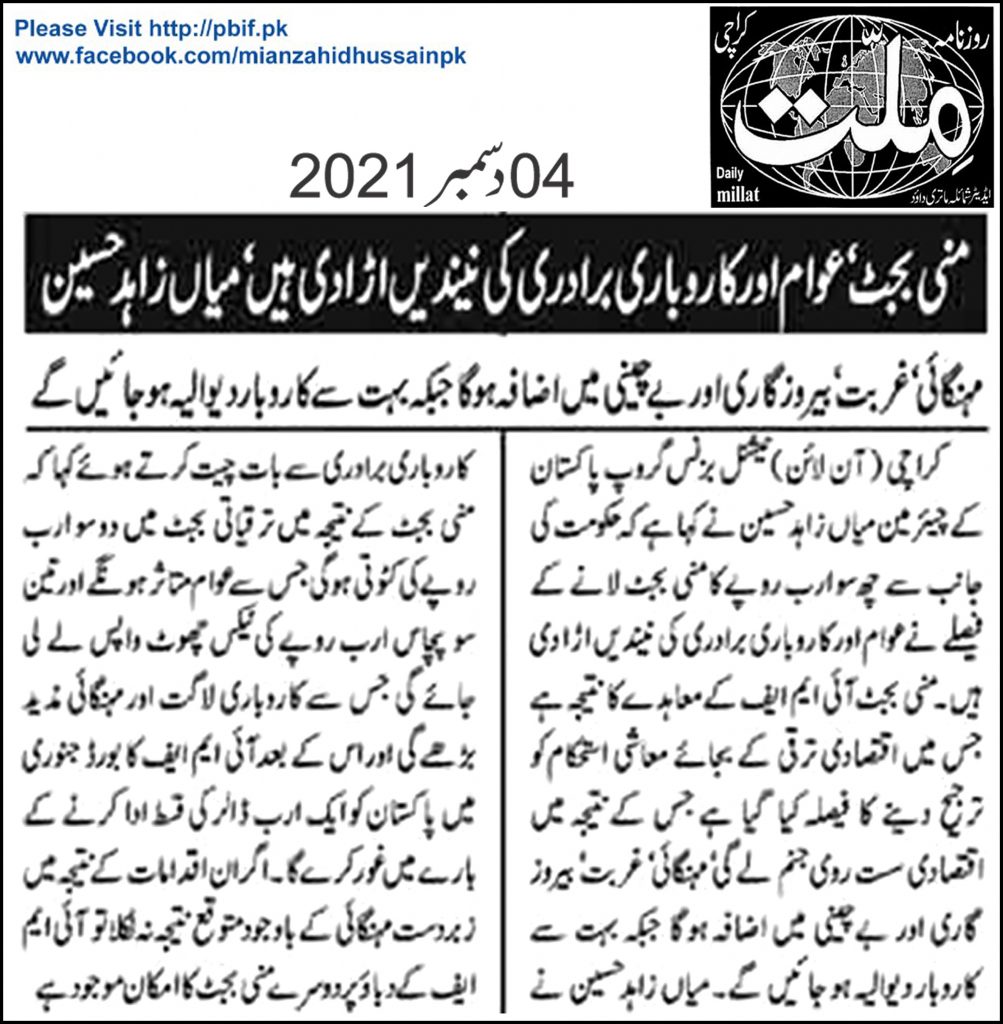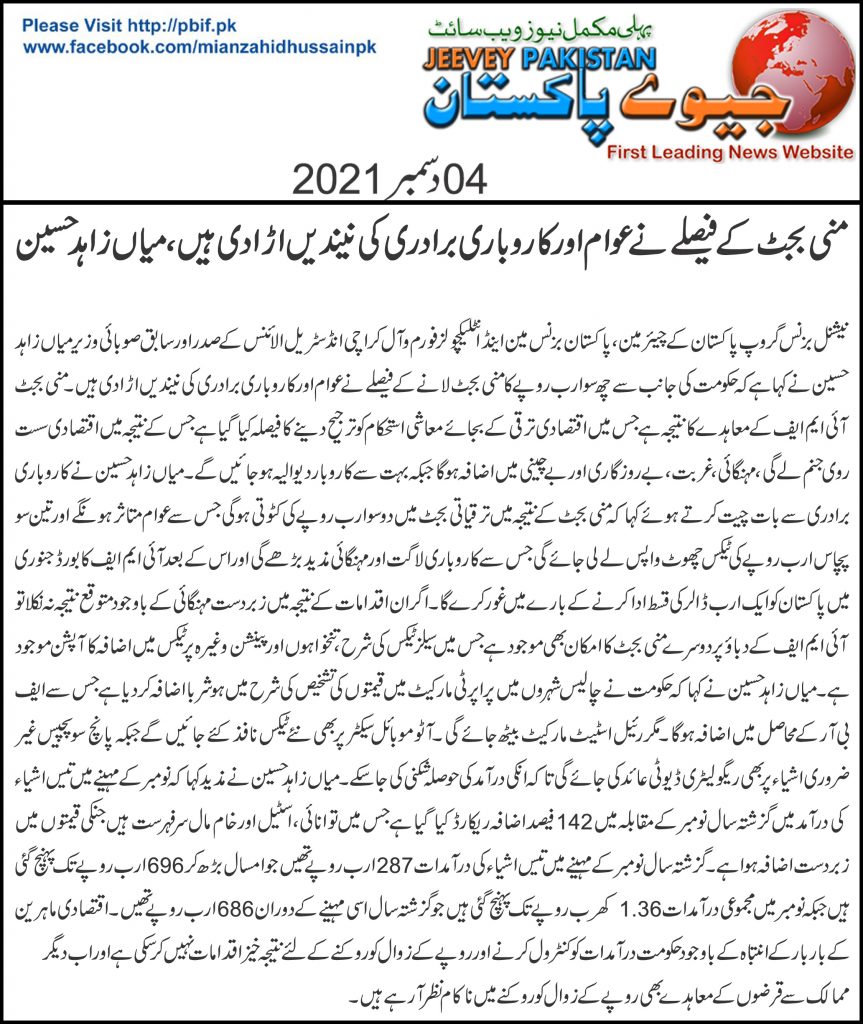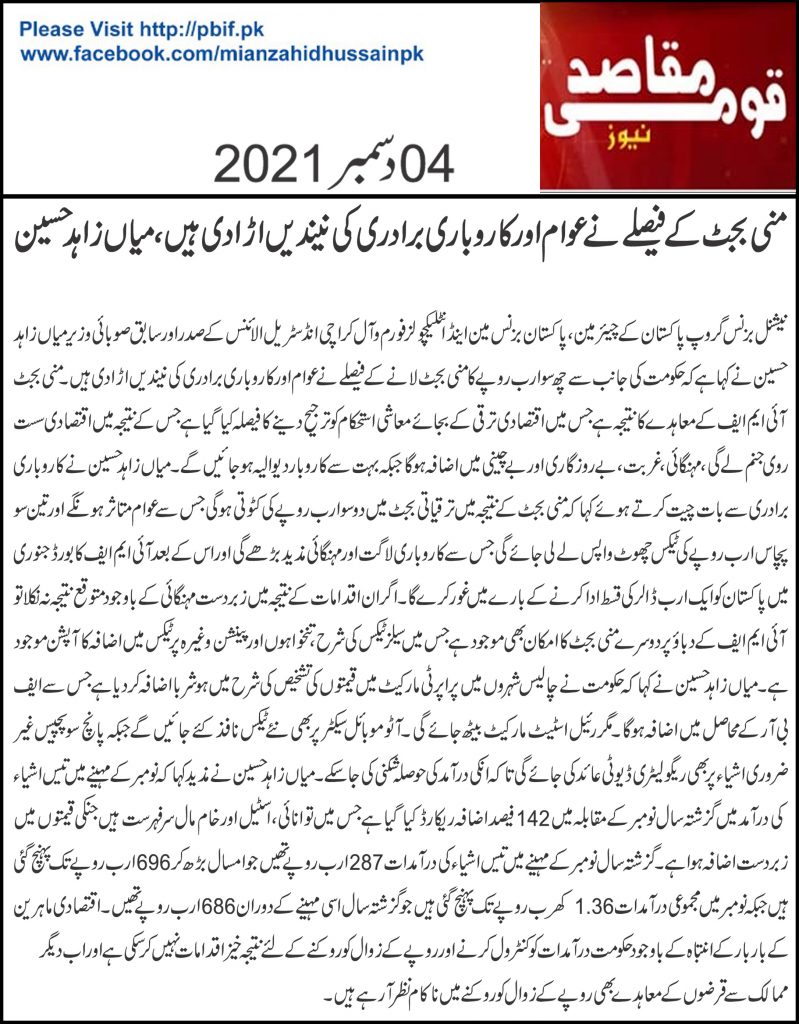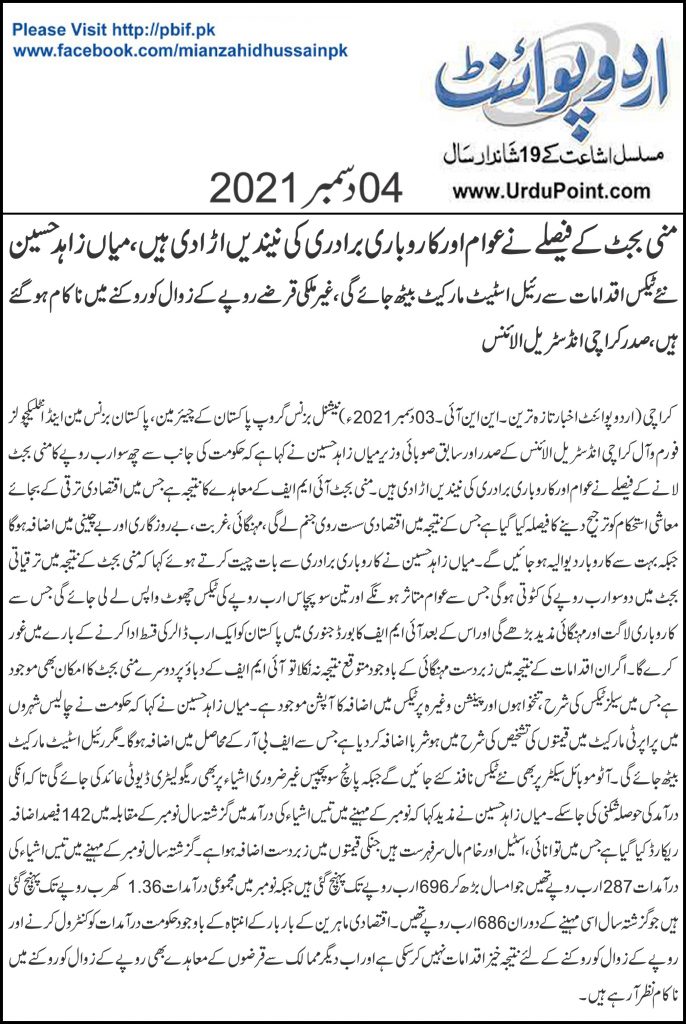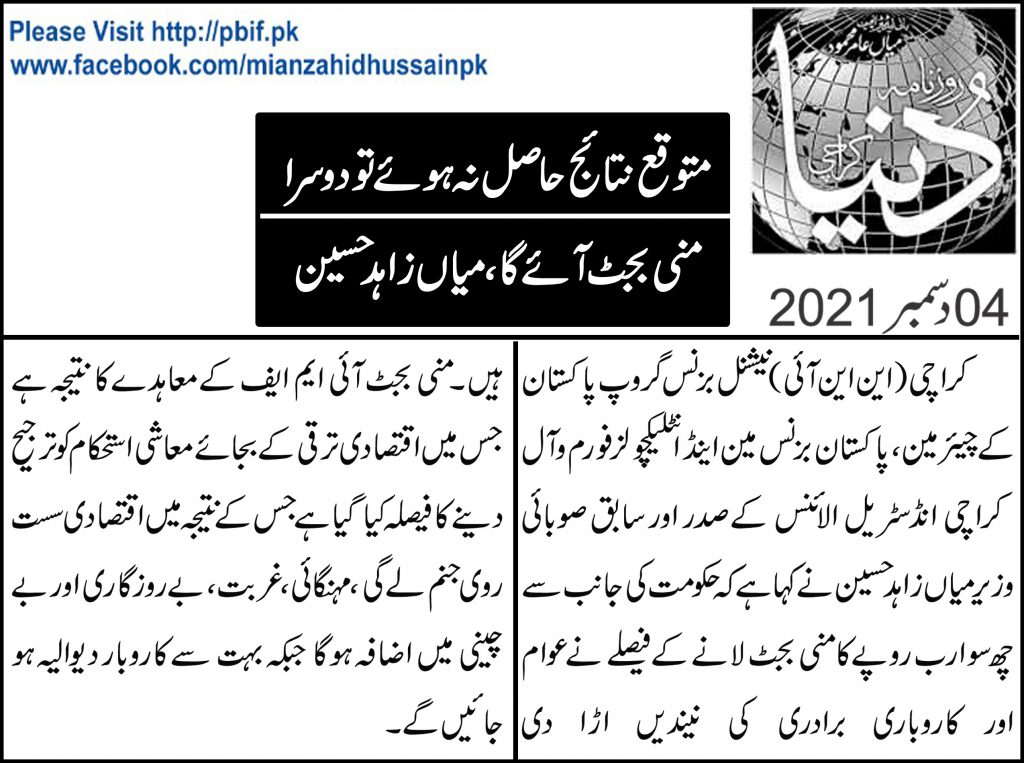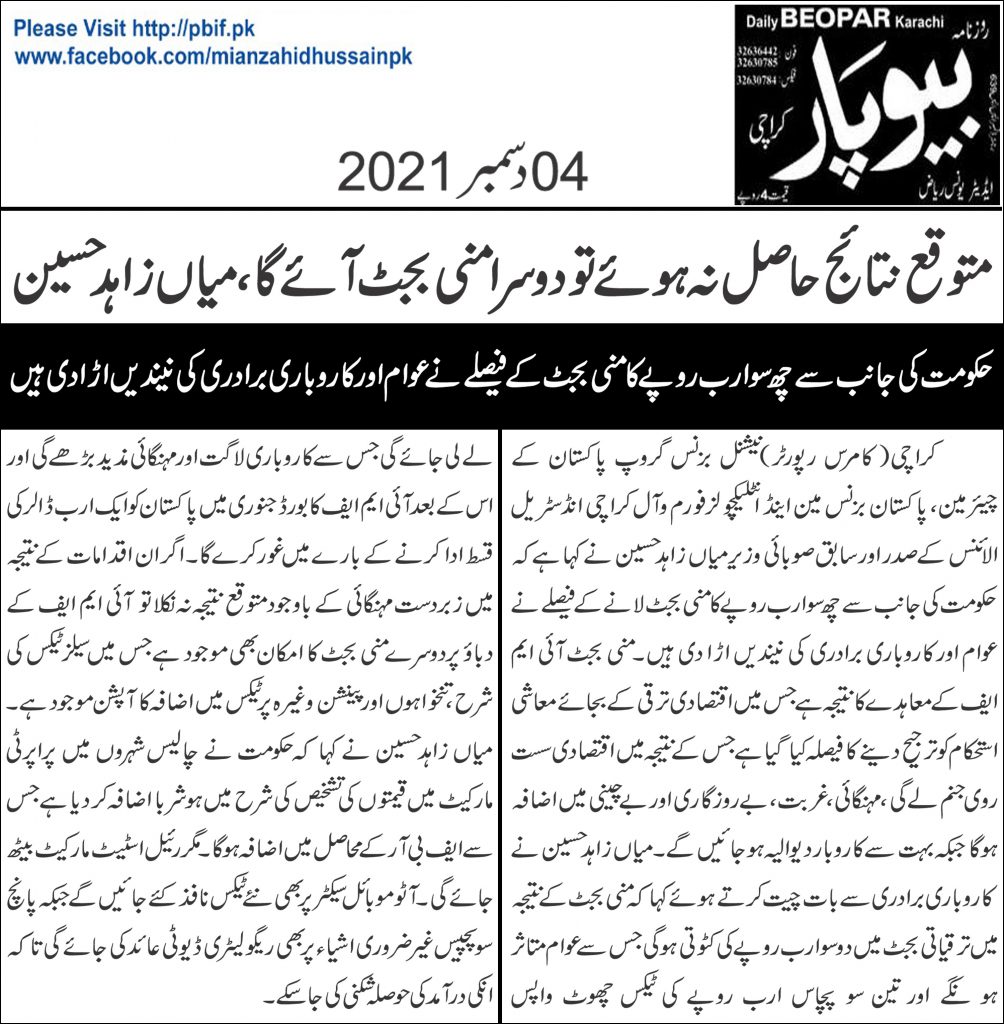(December 03, 2021)
Chairman of National Business Group Pakistan, President Pakistan Businessmen and Intellectuals Forum, and All Karachi Industrial Alliance, and former provincial minister Mian Zahid Hussain on Friday said the government has planned a mini-budget to raise revenue which is resulting in sleepless nights for the masses and the business community.
He said that the new tax measures will enhance revenue but damage the real estate market as foreign loans have failed to stem the rupee’s decline.
Mian Zahid Hussain said that a second mini-budget will be introduced if the first one fails to achieve the expected results.
Talking to the business community, the veteran business leader said that the decision of the government to bring in a mini-budget of Rs 600 billion has terrified the masses which are already facing one of the highest inflation in the world.
He said that the impending mini-budget is the result of an IMF agreement that prioritizes economic stability over economic growth which will be leading to economic slowdown, rising inflation, poverty, unemployment and unrest, while many businesses will go bankrupt.
He said that there would be a reduction of Rs200 billion in the development budget which would affect the people and the tax exemptions of Rs350 billion would be withdrawn further increasing business costs and inflation, after which the IMF board will consider paying one billion dollars to Pakistan in January.
Government has the option of raising tax rate on sales tax, salaries and pensions, he said, adding that the government has increased the rate of valuation of properties in 40 cities, which will increase the revenue of FBR but damage the real estate market.
New taxes will also be imposed on the automobile sector, while regulatory duties will also be imposed on 525 non-essential items to discourage their imports.
Mian Zahid Hussain further said that in the month of November, the import of 30 items has recorded an increase of 142% as compared to November last year, in which energy, steel and raw materials are included.
Imports of 30 items were Rs287 billion in November last year which has increased to Rs696 billion this year while total imports in November reached Rs1.36 trillion which was Rs686 billion during the same month last year.
Despite repeated warnings from economists, the government has not been able to take effective measures to control imports and stem the rupee’s decline and now the borrowing from friendly countries is also failing to stop the rupee from depreciating.
